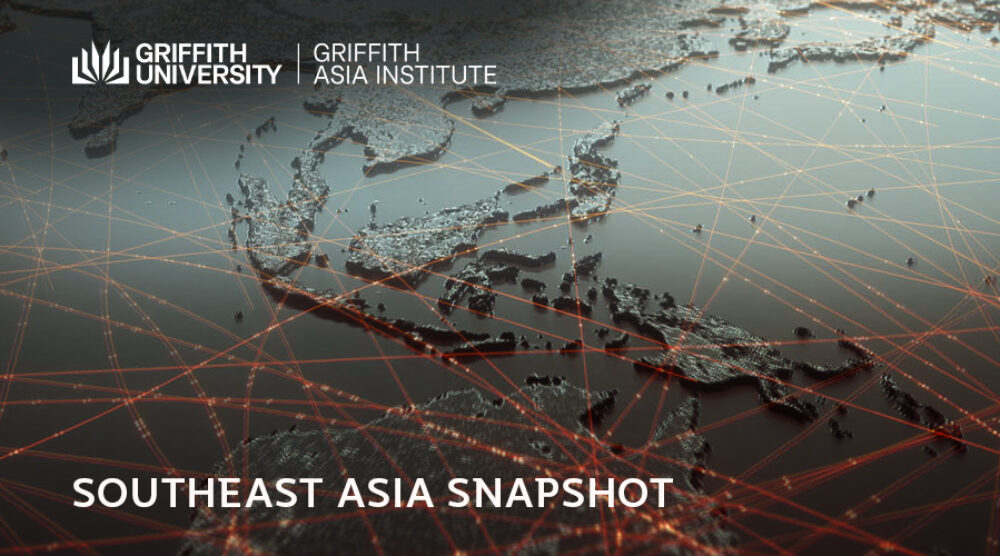Thailand Prime Minister’s Visit to Cambodia
After being elected as the 30th prime minister on 22 August 2023, Thailand Prime Minister (PM) Srettha Thavisin paid an official visit to Cambodia – the first bilateral state visit after his appointment in the Thai high office.
The one-day visit of PM Thavisin featured him meeting with Cambodian PM Hun Manet. Both leaders discussed a wide range of issues and cooperations aiming at deepening and expanding cooperation in all areas of mutual benefit within the bilateral and multilateral framework. The two prime ministers announced the intensification of their strategic partnership and discussed key issues such as economic cooperation, trade, tourism, investment, border development, and new economic sectors. With their bilateral trade standing at more than USD 4 billion in 2022, both prime ministers pledged to improve their bilateral trade to USD 15 billion by 2025.
Moreover, PM Thavisin promised that Thailand will form a new committee that will further negotiate with Cambodia over the overlapping claimed area (OCA), a 26, 000 square kilometer in the upper part of the Gulf of Thailand, which is estimated to have natural gas valued at more than USD 90 billion and oil worth more than USD 40 billion. Furthermore, PM Thavisin also proposed that both nations increase cooperation on medical and health tourism and that Cambodia re-introduce temporary border passes to support border tourism and host the next meeting of the Joint Boundary Committee (JBC) to increase border trade volume.
In addition, both leaders also vowed to continue border area demining and, more importantly, to stamp out online scamming as it has been a hot issue in both countries. Apart from PM Hun Manet, the Thai leader also paid a courtesy call to the King of Cambodia, former PM Hun Sen, and other high-ranking officials to cement both countries’ relations in the new era.
The Secretary General of the Royal Academy of Cambodia, Mr. Yang Peou, argued that Thavisin’s visit to Cambodia as his first ASEAN trip demonstrates how much he values the bilateral relationship. Meanwhile, Cambodia’s former Prime Minister Hun Sen offered his “full support” to the cooperation between the two countries and is confident that the Thai leader would help forge even closer Cambodia – Thailand bilateral ties. Some observers also highlight PM Thavisin’s visit to Cambodia was a priority because “Srettha Thavisin is close to Thaksin Shinawatra’s family and Thaksin is also close to the family of former Prime Minister Hun Sen, the visit will also deepen the bonds between the two leaders’ families”.
A new era of Cambodia–Thailand relations is about to begin with PM Thavisin choosing Cambodia as his first high official bilateral visit and it appears trade, tourism, investment, and security are at the center of their upgraded relations.
Indonesia launched its first China-funded high-speed train
Indonesian President Joko Widodo inaugurated, on 2 October 2023, Indonesia’s first high-speed railway – the first in Southeast Asia – as part of the Beijing Belt and Road initiative.
Under the name “Whoosh” with a speed of roughly 350 kilometers per hour, the bullet train will travel between the Halim railway station in East Jakarta and West Bandung’s Padalarang railway station in West Java cutting the travel time from 3 hours to 40 minutes. This USD 7.3 billion project was funded and built by PT KCIC, which is made up of four Indonesian state companies and Beijing’s China Rail Way International Co.
Many are extremely enthusiastic about the new high-speed train while others are also concerned about the high USD 16 – USD 22.6 per ride price tag. President Jokowi highlighted that the train “is a symbol of our modernization in public transport, seamlessly connecting with other modes of transportation.” Interestingly, some locals believe the construction of the train had left a trail of damage such as causing water scarcity, pollution, and damaged houses for hundreds of villagers who have received little or no compensation from the company or the government. Some also add that the railway would further cement President Jokowi’s legacy as a leader who pushed through with major infrastructure projects that have languished for decades.
The “Whoosh” high-speed train will aid Indonesia in terms of time and transportation; however, the cost and environmental impact on locals will remain a concern to the Indonesians.
Transboundary haze swept across Indonesia, Malaysia, and Singapore
The air quality in parts of Malaysia and Indonesia has spiked into an index where people can experience health effects and those with sensitive conditions could suffer more serious problems.
In early October 2023, more than 300 forest and peatland fires on Indonesia’s Sumatra island caused hazy skis across the region in which the smoky haze drifted toward Palembang causing unhealthy air conditions for the area’s 1.7 million people. Despite the fire decline, Malaysia reported that the air quality in Sri Aman – a district in Malaysia – was at an unhealthy level and the authorities are preparing to make rain by seeding clouds and preparing to shut schools as the quality of air deteriorates. Singapore’s air quality in the center and east of the island has reached “unhealthy” levels with a warning that hazy conditions may be widespread due to a forest fire in Indonesia, increasing tension in the region over cross-border air pollution that causes respiratory illness and can slash tourism revenue.
However, the Indonesian Environment and Forest Minister said “until now there is no transboundary haze”, denying any transmission of smog from Indonesia to other countries while Malaysia closely monitored and sent many letters to the Indonesian government urging for cooperation under the ASEAN Agreement on Transboundary Haze Pollution. Singapore authorities have begun advising residents to reduce prolonged strenuous outdoor activities to mitigate health risks in response to the haze problem.
The transboundary haze issue between the three countries could spread from an environmental issue to a political issue if point-finger diplomacy prevailed instead of prompting urgent measures and cooperation.
Sovinda Po is a Research Assistant at the Griffith Asia Institute.








